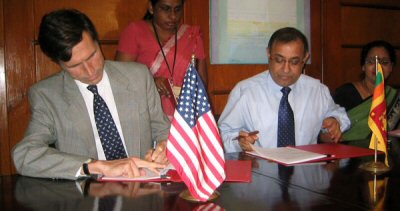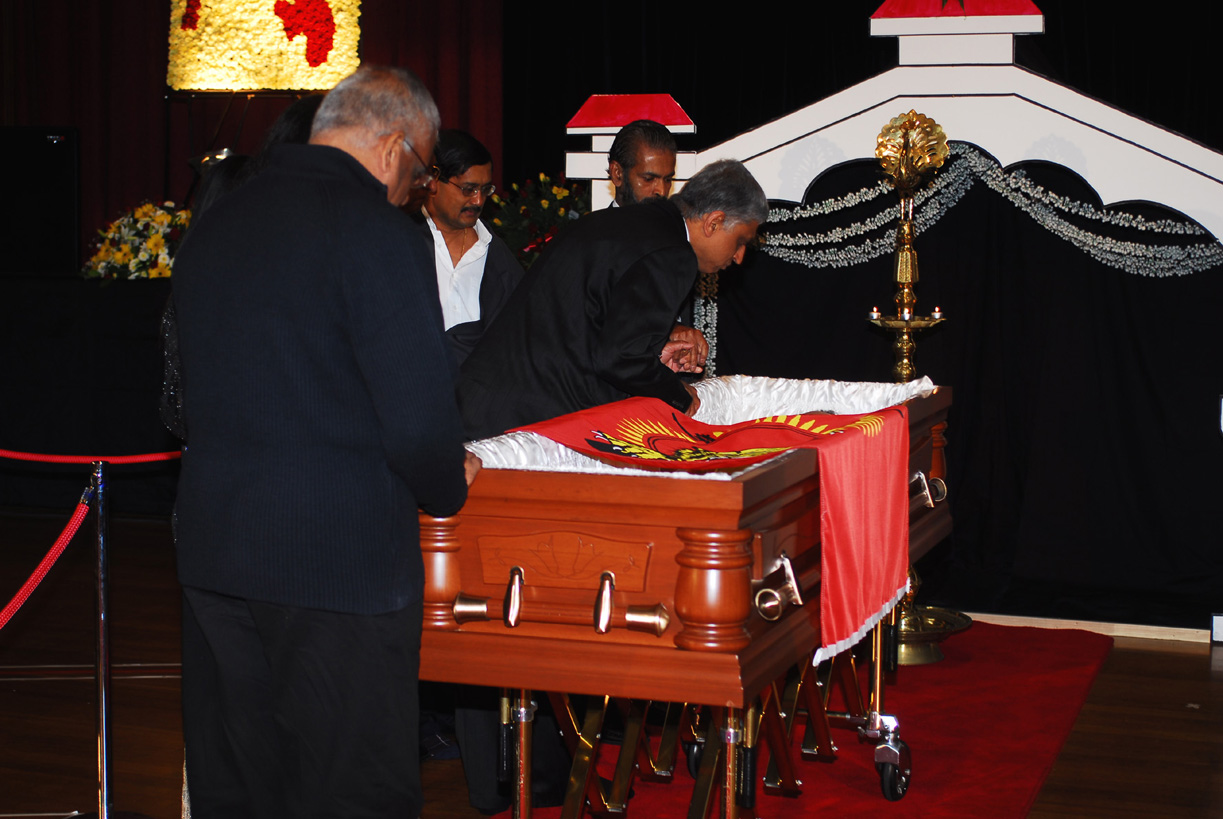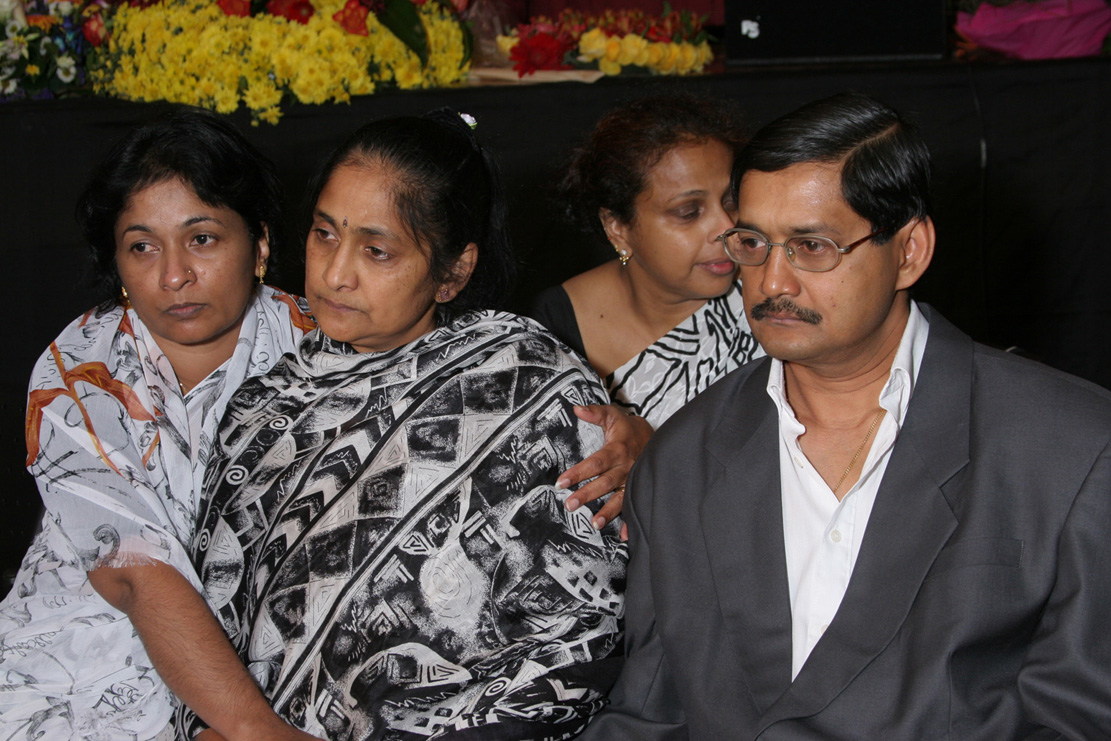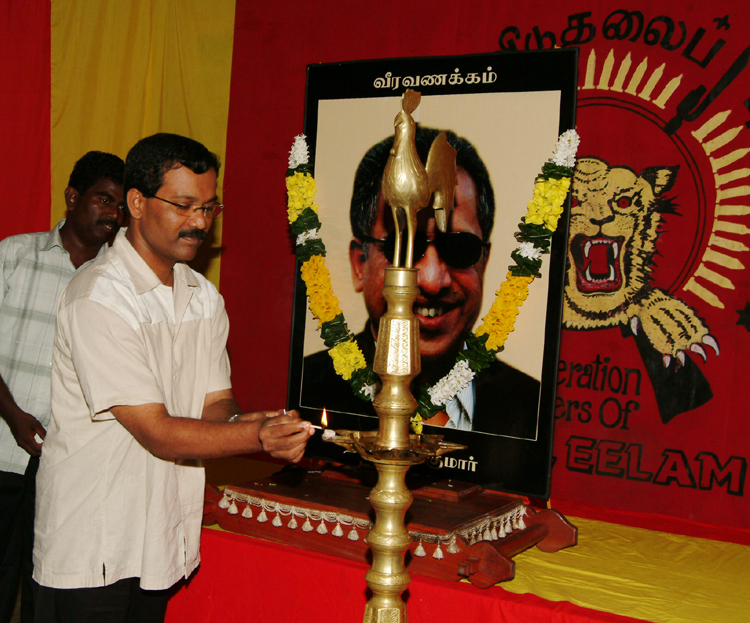I am not a terrorist
I believe the Tamil people have been, and continue to be, systematically discriminated against by the Sri Lankan state.
I am not a terrorist.
After decades of non-violent, political struggle was met with violent repression by Sri Lanka, I believe that armed-resistance was the only choice left to the Tamil people.
I am not a terrorist.
I believe a just peace can only be achieved in Sri Lanka if the Tamil people’s right to self-determination is recognised.
I am not a terrorist.
The conflict in Sri Lanka is not on the radar of most people in the West. The media only pick it up when there is something particularly horrendous or spectacular, or when it impinges upon the cricket or the beaches.
The media coverage surrounding the recent arrests in Australia, the UK, France and the US reflects a global climate where the advocacy of minority rights and armed resistance to state-oppression is condemned. People who do so are labelled ‘extremists’ or ‘terrorist sympathisers’.
The Colombo government has been able to use the language of terror to criminalise the Tamil population in Sri Lanka and in the Diaspora. Today the words Tamil and tiger go together as easily as Islamic and fundamentalist; as easily as Vietnam and war; as krispy and kreme.
Like many young Tamils in the Diaspora I have struggled to reconcile my people’s armed struggle for freedom with the liberal values of my adopted home.
It is a reflection of the times that I feel the need to say upfront that what I seek is peace with justice.
Also, this is not a comment on matters currently before the courts.
However, I hope this article will help form a more nuanced picture on what is being currently played out in the Diaspora.
They need to be understood in the context of a foreign struggle. A struggle that the Western media seek to interpret through the lens of terror.
I do not claim to speak for the entire Tamil community, like any community there are a range of views and voices.
My ideas about the conflict have been shaped in two phases – the ‘angry brown man’ phase and the ‘intellectual brother’ phase.
The ‘angry brown man’ phase lasted from my teens through to my second year of university. Feelings of teenage social exclusion and ‘otherness’ were fused with stories passed down through parents and grandparents. As a young man – mine is a gendered experience – I turned to the hip hop of Public Enemy and the romanticised resistance of the Tamil freedom struggle.
However, I could not relate to the fiery passion of the older men; my liberal arts education made me question violence. I feared the label ‘radical’ or ‘extremist’.
Then I did some post-graduate study on the conflict – what I like to call the ‘intellectual brother’ phase. Here I gained a deeper understanding of the roots of the conflict and was able to form an almost dispassionate position on the struggle. In 2002 I visited Sri Lanka for the first time in eighteen years.
First the basics - the Tamils are fighting for an independent homeland in Sri Lanka following decades of discrimination. Over 70,000 of our people have been killed. A 2002 cease-fire brought a brief respite, but fighting has resumed since 2005.
For many the history of the conflict begins in 1983 with the ambush of 13 Sri Lankan soldiers, for others it is the anti-Tamil race riots in the wake of that ambush. This may have been the start of the war, but the freedom struggle and the oppression it resists pre-dates this iconic moment.
Today, the Sri Lankan government refers to `Tamil separatism’ and dare I say it ‘Tamil terrorism’. But these are but responses to the root cause of the problem-a racist ideology.
It began in 1948 when the newly independent Ceylon deprived a million Tamils, who had worked the tea plantations for about 150 years, of their citizenship and then the vote.
In 1956, the government passed the Sinhala Only Act declaring that ‘the Sinhala Language shall be the one and only official language of Sri Lanka’.
Frustrated by the government's failure to redress Tamil grievances, Tamil politicians stepped up their campaign of civil disobedience and protests.
In 1971, the Government raised university entrance marks for Tamils. A Tamil had to score 250 marks to enter medicine or dentistry, while Sinhalese needed only 229. The logic was that the Tamils were over represented at university.
In many Western countries, students of Asian origin are significantly over-represented in tertiary education. We do well because our parents see it as the only way for minority ethnians to get ahead in the white man’s world. Imagine if fifty years from now the white man feels discriminated against and ethnians have to get higher marks to get into university.
Amid heightening tension and increasing militarism anti-Tamil violence erupted when 13 Sri Lankan soldiers were killed in an ambush by Tamil militants in July 1983. More than 3,000 Tamils were killed.
These events have left a deep scar on the Tamil psyche. While the violence was not on the scale of the Holocaust – its effect on the Tamil people has been similar.
Tamil militancy led in turn to increasingly ferocious crackdowns, arbitrary and retaliatory killings of Tamils and the disappearance of young Tamils in custody.
As Tamils became vulnerable to ‘state terror’, more and more took to arms.
In February 2002 the Sri Lankan Government the Liberation Tigers of Tamil Eelam signed a ceasefire agreement (CFA) that brought to a halt two decades of war. The CFA had held for the best part of four years. However in the past 18 months Sri Lanka has slid inexorably into an undeclared, but all out war.
The Tamil people have paid a high price for their dreams of freedom. The social fabric built on family and kin, music and dance, and an ethic of hard work has been torn to shreds as families have been separated by death and forced migration. Their homeland is dotted with orphanages and a whole generation has missed out on basic education.
Why don’t I leave my war where I came from? I am burdened by the knowledge that it is a random twist of fate that has me fighting with the pen and not a rifle. The angry brown man phase would surely have taken me there.
We are not terrorists.









